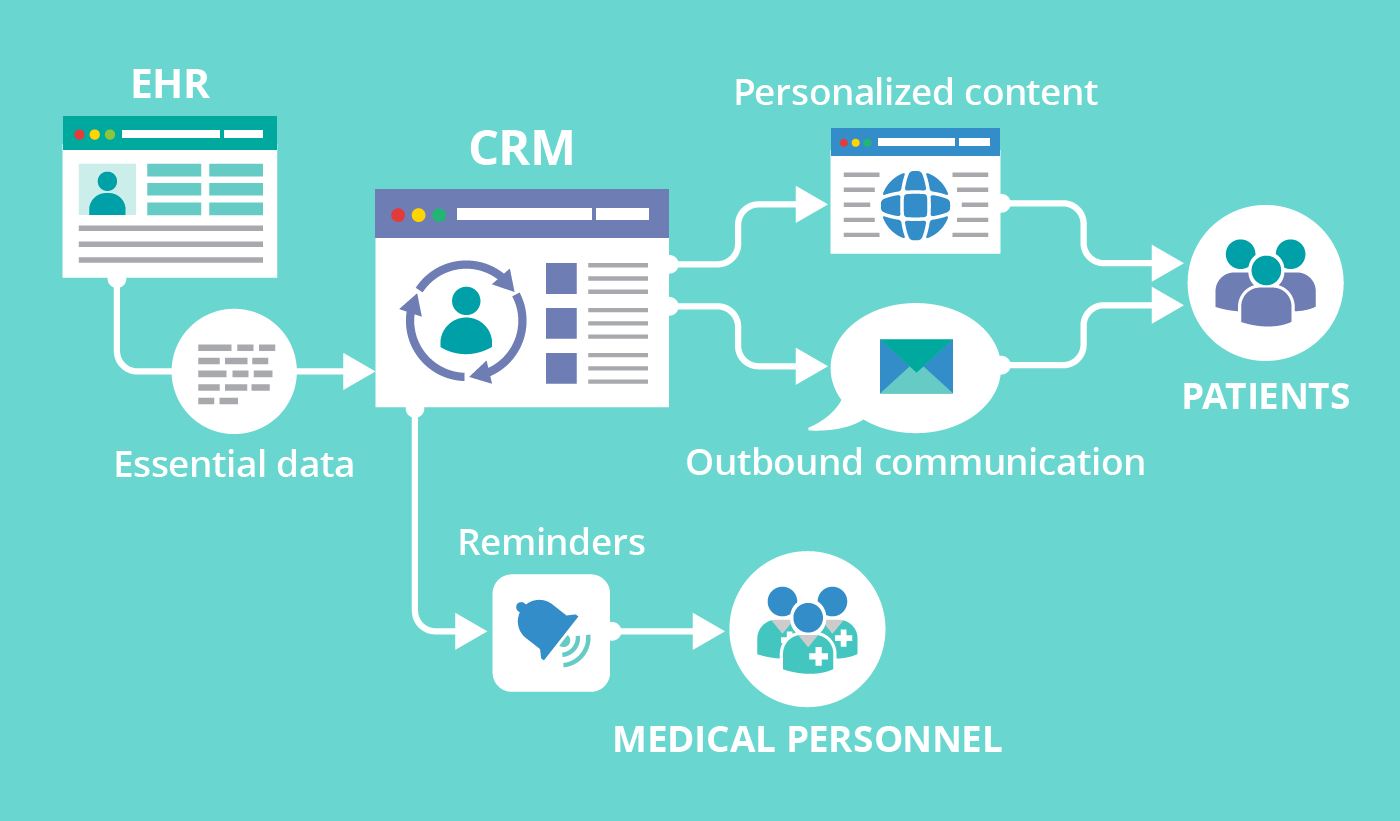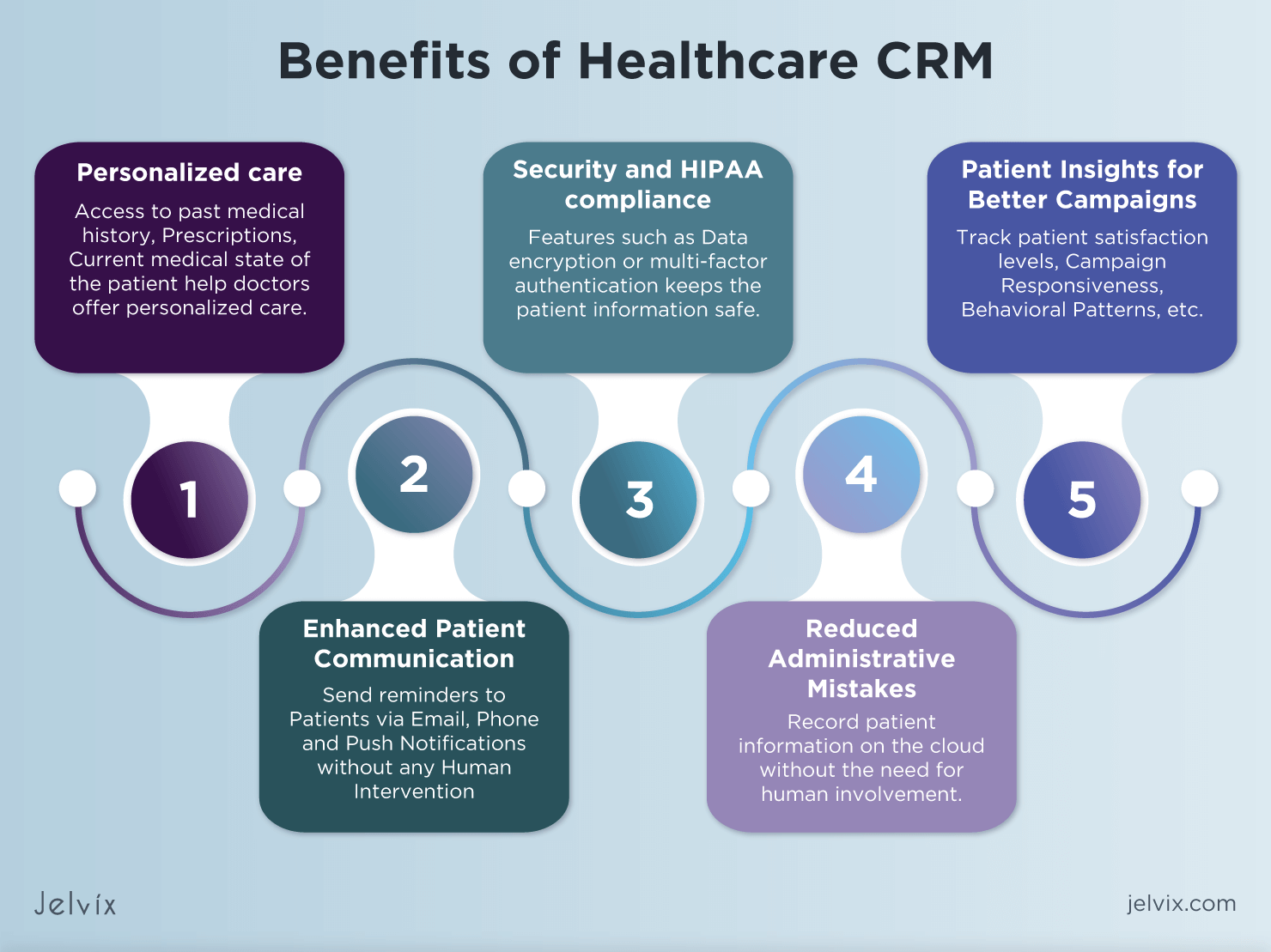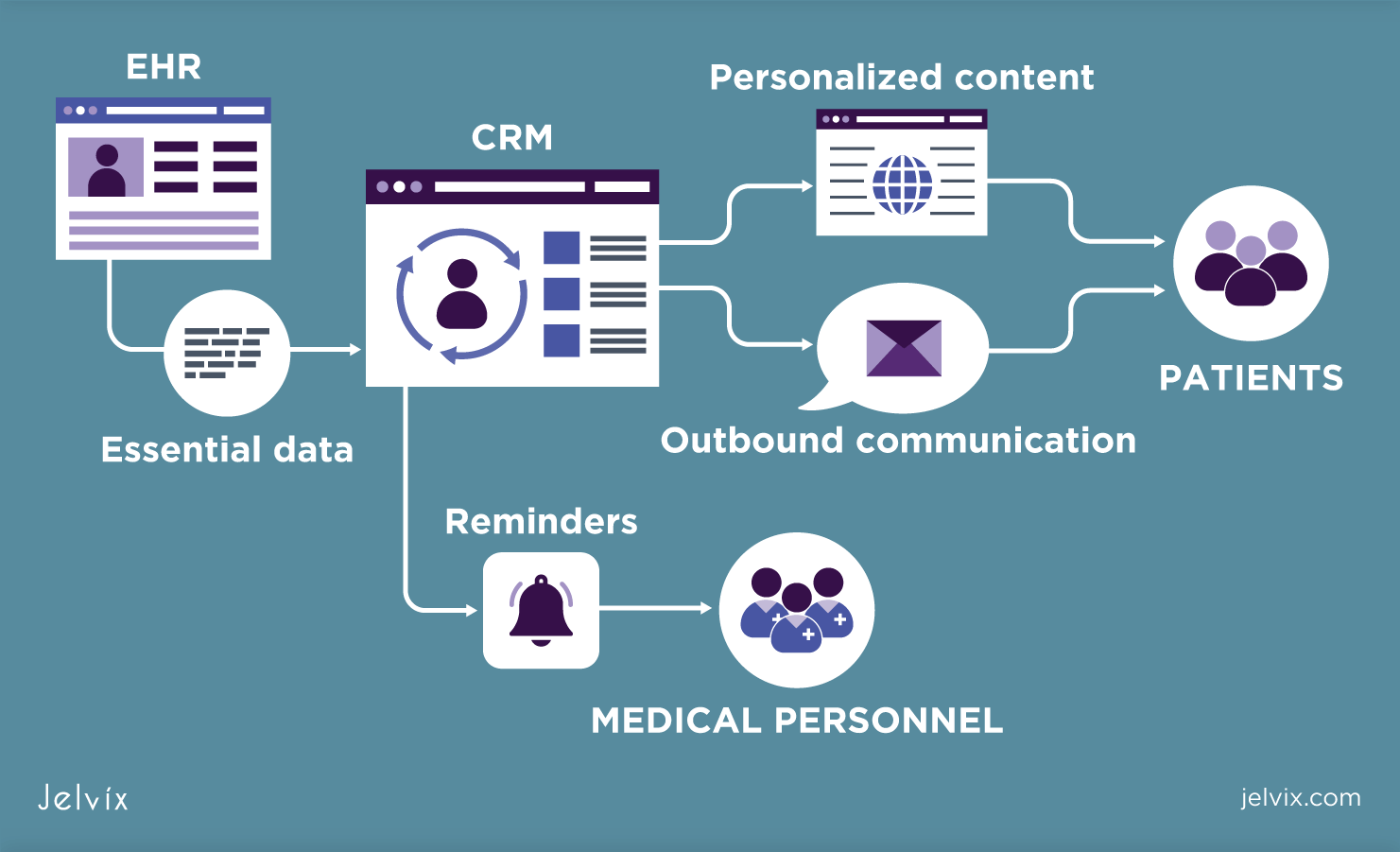Crm health care – CRM in Healthcare is revolutionizing the healthcare industry by transforming patient engagement, improving operational efficiency, and driving revenue growth. This innovative technology empowers healthcare organizations to build stronger connections with their patients, streamline operations, and deliver exceptional care.
With its comprehensive functionalities, CRM systems offer a range of benefits specifically tailored to healthcare organizations, including patient management, scheduling, medical records, and enhanced communication channels. By leveraging these capabilities, healthcare providers can improve patient satisfaction, streamline workflows, and optimize their operations.
CRM System Functionality

Customer relationship management (CRM) systems are designed to help healthcare organizations manage and track interactions with patients and other stakeholders. These systems provide a centralized platform for storing and accessing patient data, managing appointments, and tracking communication. By leveraging CRM systems, healthcare organizations can enhance patient engagement, improve communication, and streamline operations.
CRM systems for healthcare typically include modules or features specifically designed for the industry. These may include:
- Patient management:This module allows healthcare providers to track patient demographics, medical history, appointments, and other relevant information. It also provides tools for managing patient relationships, such as scheduling appointments, sending reminders, and tracking communication.
- Scheduling:This module helps healthcare providers manage appointments and availability. It allows patients to schedule appointments online or through a mobile app, and it provides reminders and notifications to both patients and providers.
- Medical records:This module allows healthcare providers to securely store and access patient medical records. It provides tools for managing patient charts, tracking diagnoses, and prescribing medications.
- Patient engagement:This module helps healthcare providers engage with patients and build relationships. It provides tools for sending personalized messages, tracking patient feedback, and managing patient education.
CRM systems can enhance patient engagement by providing patients with easy access to their health information and allowing them to communicate with their healthcare providers more easily. They can also improve communication between healthcare providers by providing a centralized platform for sharing patient information and tracking communication.
Benefits of CRM in Healthcare: Crm Health Care

Implementing a CRM system in healthcare organizations offers numerous advantages, including enhanced patient satisfaction, improved operational efficiency, and increased revenue generation. CRM systems streamline patient interactions, enabling healthcare providers to manage patient relationships effectively and build stronger connections with their patients.
Improved Patient Satisfaction
CRM systems provide a centralized platform for managing patient data, allowing healthcare providers to access patient information easily and quickly. This enhanced accessibility leads to improved patient care, as providers can tailor treatments and services to meet individual patient needs.
Additionally, CRM systems enable healthcare organizations to track patient interactions, identify areas for improvement, and respond promptly to patient inquiries or concerns. By addressing patient needs efficiently, CRM systems contribute to increased patient satisfaction and loyalty.
Increased Operational Efficiency
CRM systems automate many administrative tasks, such as scheduling appointments, managing patient records, and processing insurance claims. This automation reduces the workload for healthcare staff, freeing up their time to focus on providing patient care. Streamlined workflows and improved communication within the healthcare team also contribute to increased operational efficiency, leading to cost savings and improved productivity.
Enhanced Revenue Generation
CRM systems provide valuable insights into patient behavior and preferences, enabling healthcare organizations to develop targeted marketing campaigns and personalized treatment plans. By understanding patient needs and preferences, healthcare providers can offer tailored services and products that are more likely to be purchased.
Additionally, CRM systems facilitate patient retention and loyalty, which can lead to increased revenue generation over time.
Case Study: Improved Patient Care and Revenue Growth
A study conducted by a leading healthcare organization demonstrated the significant impact of CRM on patient care and revenue generation. After implementing a CRM system, the organization experienced a 15% increase in patient satisfaction, a 10% reduction in operational costs, and a 5% increase in revenue.
The CRM system enabled the organization to provide personalized care, streamline operations, and identify opportunities for growth.
Challenges of Implementing CRM in Healthcare
Implementing CRM systems in healthcare organizations presents unique challenges that require careful consideration. These challenges often stem from the complexities of healthcare data, resistance to change, and the need to adhere to regulatory requirements.
Data Integration
Integrating data from multiple sources, such as electronic health records (EHRs), patient portals, and insurance claims, can be a significant challenge. Healthcare organizations often struggle to create a unified view of patient data, leading to inefficiencies and potential errors.
User Adoption, Crm health care
Resistance to change among healthcare professionals can hinder the successful adoption of CRM systems. Clinicians may be reluctant to use new software that they perceive as disruptive to their workflow. Overcoming this resistance requires effective change management strategies and user training.
Regulatory Compliance
Healthcare organizations must adhere to strict regulatory requirements, such as HIPAA and GDPR. CRM systems must be designed and implemented to comply with these regulations, ensuring the privacy and security of patient data. Failure to comply can result in significant penalties and reputational damage.
Best Practices for CRM in Healthcare

Effective utilization of CRM systems in healthcare organizations requires a strategic approach that encompasses data management, workflow optimization, ongoing system evaluation, and training and support for healthcare providers.
Data management is crucial for maintaining accurate and up-to-date patient information, ensuring seamless care coordination and informed decision-making. Healthcare organizations should establish clear data governance policies and procedures to ensure data integrity, security, and accessibility.
Workflow Optimization
Workflow optimization through CRM systems can streamline processes, reduce redundancies, and improve efficiency. By automating tasks such as appointment scheduling, patient communication, and insurance verification, healthcare providers can focus on delivering high-quality patient care.
Ongoing System Evaluation
Regular evaluation of CRM systems is essential to ensure they meet the evolving needs of healthcare organizations. This involves monitoring system performance, collecting feedback from users, and identifying areas for improvement. By continuously assessing the effectiveness of CRM systems, organizations can make informed decisions about system enhancements and updates.
Training and Support
Training and support are critical for successful CRM system adoption and utilization. Healthcare providers need to be adequately trained on the system’s features and functionality to maximize its benefits. Ongoing support should be provided to address any challenges or questions that may arise during system implementation and usage.
Future Trends in Healthcare CRM
Healthcare CRM is rapidly evolving, driven by technological advancements and changing patient expectations. Emerging trends include the adoption of artificial intelligence (AI), machine learning (ML), and predictive analytics to enhance patient care and optimize operations.
Impact of AI, ML, and Predictive Analytics on Healthcare CRM
* Personalized patient experiences:AI-powered chatbots and virtual assistants provide personalized support and guidance to patients, improving engagement and satisfaction.
Improved patient outcomes
ML algorithms analyze patient data to identify patterns and predict health risks, enabling proactive interventions and personalized treatment plans.
Streamlined operations
Predictive analytics optimize resource allocation, reduce administrative burdens, and improve efficiency throughout the healthcare system.
Final Conclusion

In conclusion, CRM in Healthcare is a game-changer for healthcare organizations, offering a comprehensive suite of tools to enhance patient care and optimize operations. By embracing best practices, overcoming challenges, and leveraging emerging technologies, healthcare providers can unlock the full potential of CRM systems and deliver exceptional healthcare experiences.
Clarifying Questions
What are the core functionalities of a CRM system in healthcare?
CRM systems in healthcare provide core functionalities such as patient management, scheduling, medical records, and communication tools, tailored to the specific needs of healthcare organizations.
How can CRM systems improve patient engagement?
CRM systems enhance patient engagement by providing personalized communication channels, automated reminders, and self-service portals, fostering stronger relationships between healthcare providers and patients.
What are the challenges of implementing CRM in healthcare?
Common challenges include data integration, user adoption, and regulatory compliance. However, with proper planning and support, these challenges can be overcome to ensure successful CRM implementation.
